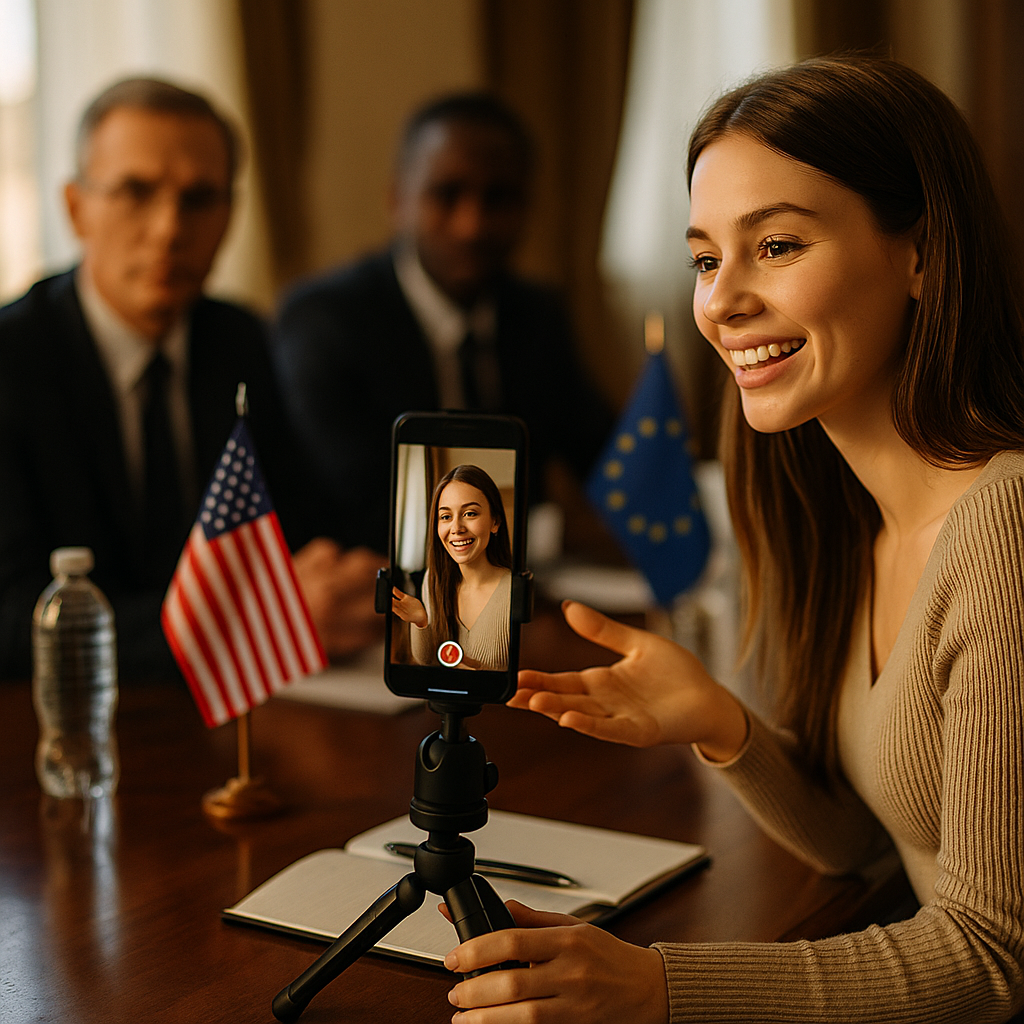Digital diplomacy has transformed how nations build global relationships in 2025. By partnering with state-sponsored influencers, governments can shape public opinion and foreign policy in new, impactful ways. This guide explores the techniques, risks, and benefits behind “digital diplomacy,” revealing how collaborations with top influencers build bridges—or barriers—between countries. Dive in to unlock digital diplomacy’s full potential for your initiatives.
The Rise of Digital Diplomacy: Redefining Statecraft
Traditional diplomacy once relied on closed-door negotiations and official channels. In 2025, digital diplomacy means nations communicate and negotiate on open digital platforms. The proliferation of social media, especially short-form video networks and real-time streaming, has turned influencers into key diplomatic players. Governments now deploy online campaigns, leverage trending content, and craft messages that resonate with millions of digital natives. This evolution has changed not only the tools, but also the language of international relations, making engagement faster, more transparent, and responsive to public sentiment.
Partnering with State-Sponsored Influencers: Strategy and Selection
State-sponsored influencers are public figures or content creators who align with and amplify a government’s diplomatic agenda. Partnering with them offers incredible reach and persuasive power. However, a successful partnership demands strategic selection, rigorous vetting, and alignment of goals. Here are key steps:
- Identify authentic voices: Choose influencers with high local trust and genuine engagement, not just large followings.
- Assess ethical fit: Confirm their history aligns with your values and audience.
- Balance soft and hard power: Select influencers who can skillfully handle both cultural content and policy discussion.
- Legal and transparency checks: Ensure all partnerships meet legal disclosure requirements and international standards.
The selection process should be as rigorous as any official appointment, ensuring influencers can authentically advocate for state goals while maintaining their unique digital voice.
Ethical Considerations for Digital Diplomacy Campaigns
Digital diplomacy’s power demands careful ethical stewardship, especially when government agendas meet large online audiences. Common concerns include:
- Transparency: Influencers must clearly disclose state sponsorship to avoid public backlash and maintain trust.
- Audience protection: Campaigns should avoid targeting vulnerable demographics or spreading misinformation.
- Data privacy: All digital interactions should comply with strict privacy and data protection regulations, as outlined in evolving standards across major economies.
- Cultural sensitivity: State-endorsed messages must acknowledge local values and avoid stereotypes.
In 2025, transparency is a non-negotiable best practice. Studies from the Global Media Ethics Council show that 72% of digital audiences trust messages more when sponsorship is clearly stated. Maintaining credibility ensures long-term diplomatic success.
Measuring Impact: KPIs for State-Influencer Collaborations
Effective evaluation is crucial to justify investment in state-sponsored influencer efforts. Traditional metrics like view counts are only a starting point. Advanced KPIs now include:
- Engaged reach: Measure authentic shares, comments, and audience co-creation metrics to identify meaningful engagement.
- Sentiment analysis: AI tools gauge shifts in audience perception before, during, and after campaigns.
- Policy influence: Track whether digital narratives have influenced policy discussions or legislation, both domestically and abroad.
- Network amplification: Document how messages diffuse across sub-groups, especially diaspora and youth communities.
Recent data from the Digital Diplomatic Forum shows that coordinated influencer campaigns increased favorable sentiment toward partner countries by 15% in monitored trials. These measurable shifts underline the power of well-executed digital diplomacy.
Risk Management and Crisis Response in Digital Diplomacy
High-profile online partnerships carry unique risks—from miscommunication and misinformation to real-time backlash. Proactive risk management is essential. Strategies include:
- Crisis simulation drills: Regularly rehearse potential controversies and negative scenarios with influencer partners.
- Real-time monitoring: Use AI-driven alert systems for early detection of viral misinformation or coordinated attacks.
- Clear messaging playbooks: Develop scalable, step-by-step protocols for public apologies, clarifications, or pivots when needed.
- Cross-platform redundancy: Avoid over-reliance on a single network in case of account suspension or platform disruptions.
Recent incidents remind us that even the most carefully planned campaigns can face turbulence. Preparing agile, transparent crisis response mechanisms is now standard best practice among leading diplomatic teams worldwide.
The Future of Digital Diplomacy: Opportunities and Emerging Trends
The landscape of digital diplomacy in 2025 is both promising and complex. With the rise of AI-generated content, decentralized platforms, and cross-border virtual communities, the next wave of digital diplomacy will focus on:
- Virtual reality embassies: Nations are piloting VR-based public forums to host town halls and cross-cultural experiences in real-time, immersive settings.
- Micro-influencer outreach: Smaller, niche creators often outperform celebrities on trust and conversion in collaborative diplomacy efforts.
- Blockchain for accountability: Distributed ledgers track campaign sponsorship and impact, bolstering transparency and trust.
- Localized AI translators: Allowing tailored campaign content in dozens of dialects and micro-languages increases inclusivity and reach.
Staying adaptive to these developments will separate diplomatic leaders from laggards, especially as digital savvy becomes integral to a nation’s global reputation.
FAQs about Digital Diplomacy and State-Sponsored Influencers
-
What is digital diplomacy?
Digital diplomacy refers to the use of digital platforms and channels to advance a country’s diplomatic objectives, communicate policies, and engage with global audiences online. -
How do governments choose state-sponsored influencers?
Governments partner with influencers who align with their agenda, have authentic audiences, and demonstrate ethical integrity and communication skills, often after thorough vetting and compliance checks. -
Are there risks to partnering with state-sponsored influencers?
Yes. Risks include potential backlash if sponsorship isn’t transparent, dissemination of misinformation, and rapid amplification of crises. Robust risk management is essential. -
How is campaign success measured?
Success is measured through advanced KPIs such as engaged reach, sentiment analysis, policy impact, and network amplification, supported by AI-driven analytics tools. -
What are emerging trends in digital diplomacy for 2025?
Key trends include VR-based diplomatic engagement, micro-influencer campaigns, blockchain accountability, and AI-powered localized content creation.
Digital diplomacy and state-sponsored influencer partnerships have become essential diplomatic tools in 2025. Effective, ethical collaborations require transparent communication, advanced metrics, and agile risk management. Harnessing these principles will help governments and partners foster positive global relationships—and avoid missteps—in the dynamic digital age.
